【報告】 ANU-PKU-UTokyo Winter Institute 2018 (4)
The fourth day had presentations by participants. The report is divided into two parts. The first half of the presentation outlines are as follows.
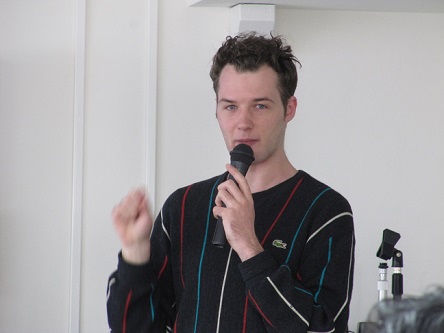
Felix Eugene Borthwick(Master Student, Utokyo)
“Space and time out of sync: quesiton of coexistence in a Japanese Danchi”
Felix is researching “Danchi(団地)” which is a kind of public housing complexes in Japan, and examining how people with different customs in “Danchi” have coexisted. “Danchi” played a role in accepting the increasing population in the metropolitan area during the period of high economic growth, but now it is on a downward trend and the way of “co-existing” is changing. In his presentation, while considering the historical trend of the “Danchi”, he questioned how to utilize this “place” in the future.
Ben Chapman-Schmidt (PhD student, ANU)
“Translational Governance and Orientalism: American Responses to Human Trafficking in Japan”
Based on a survey of trafficking by US government agencies "Trafficking in Persons Report", Ben questioned and tried to clarify the fact of Japan which is a major developed country but in a relatively low rank in the survey. He emphasized the necessity of analyzing the problem and recommending solutions while pays close attention so that the high and low of the rank will not lead to moral superiority or inferiority.
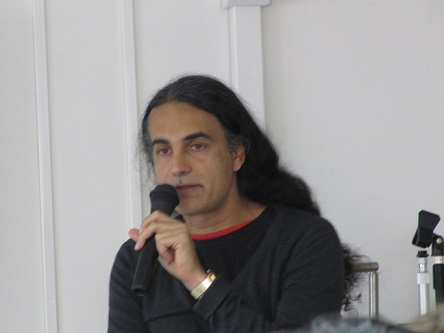
Kim Cunio (Lecturer, ANU)
“The Vanishing: Artistic research as activism”
Dr. Kim Cunio is targeting the research on music and exploring the possibility of music in human society. In his presentation, he mentioned the music which called “The Vanishing”. It is a kind of composition which made by the cooperation of artists, musicians, designers, programmers, etc. in Australia, North America and India. Mr. Kim's presentation was accompanied by music, and it could feel the possibility of “co-existence” by music.
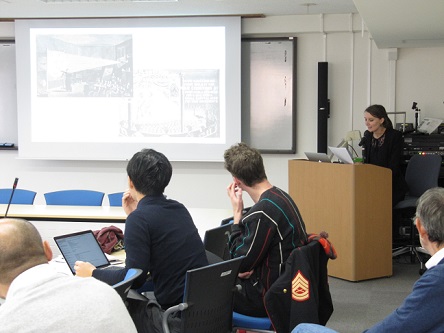
Elisa de Courcy (Research Fellow, ANU)
“Heritage in the Limelight: The Magic Lantern in Australia and the World”
Dr. Elisa de Courcy is studying the history of photography and projection technology. In her presentation, she introduced a projector called “Magic Lantern” which was popular all over the world (especially in Australia) from the 19th century to the early 20th century. She said that “Magic Lantern” is used by explorers, missionaries, scientists and others to express their thoughts and experiences. Therefore, by clarifying the aspects of “Magic Lantern”, it can provide new viewpoint to the research in the related field.
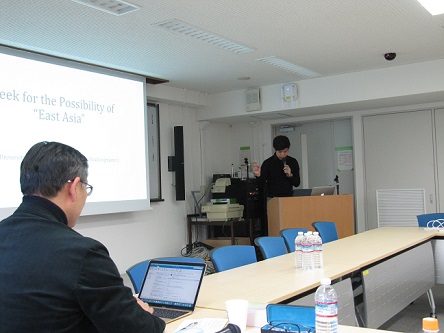
Ryohei Tatebe (Master Student, UTokyo)
Seek for the Possibility of “East Asia”
Ryohei is studying Chinese philosophy. In his presentation, he said that there have room for reconsidering the concept of “Chinese”. “Chinese” philosophy is not a unitary concept, but it has constantly interrelated with various elements. Therefore, he emphasized that “Chinese” philosophy must be considered not only from "China", but also from the viewpoint of “East Asia”.
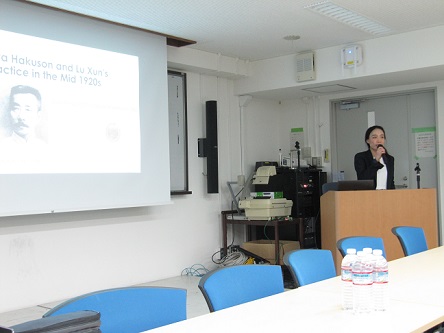
Chen Xing (Postdoctoral Researcher, PKU)
Kuriyagawa Hakuson and Lu Xun’s literary practice in the mid 1920s.
Chen Xing specializes in Chinese literature, especially focusing on the research of Lu Xun(魯迅) and Zhou Zuoren(周作人) brothers. In her presentation, she paid attention to the fact that Lu Xun translated the “symbol of agony(苦悶の象徴)” which was written by Japanese scholar Kuriyagawa Hakuson(厨川白村), and mentioned the concepts such as “pains” and “sympathy”. In this institute, “translation” is a keyword in considering "co-existence". In that sense, her presentation inspired us a lot.
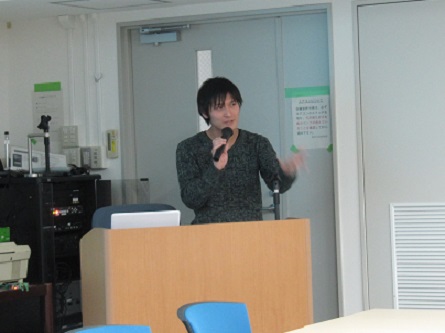
Hiroki Yamano (Master Student, UTokyo)
The possibility of theory of language in the era of the “post-linguistic turn”
Hiroki is studying French Philosophy. In his presentation, he considered “co-existence" with using the concepts of “appropriation” and “alienation” in French philosophy. “Appropriation” means that when you think the situation of the others, just based on your own values. “Alienation” means that when you communicate with others, you see the others as a completely different existence. There are two extreme ways to construct the relationship with others, and he emphasized that it is important to keep balance between the two ways.
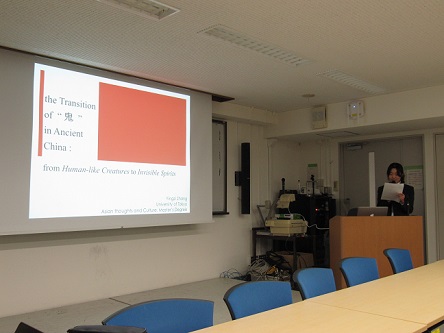
Yingzi Zhang (Master Student, UTokyo)
The transition of 鬼 in Ancient China:from Human-like Creatures to Invisible Spirits
Yingzi is studying Chinese philosophy. This time she presented the transition of the concept of “Gui(鬼)” in ancient China. In today’s Chinese, “Gui” means something like an invisible spirit, but in the ancient times it was referring to a monster like a human being. After that, meaning like barbarian gradually involved, and it has been possible to add spiritual meaning from the time when “Analects(論語)” was compiled. In many cases, the concepts which used in Chinese philosophy is often given multiple meanings, so she said that there has been established a kind of “co-existence”.
By Ryohei Tatebe






